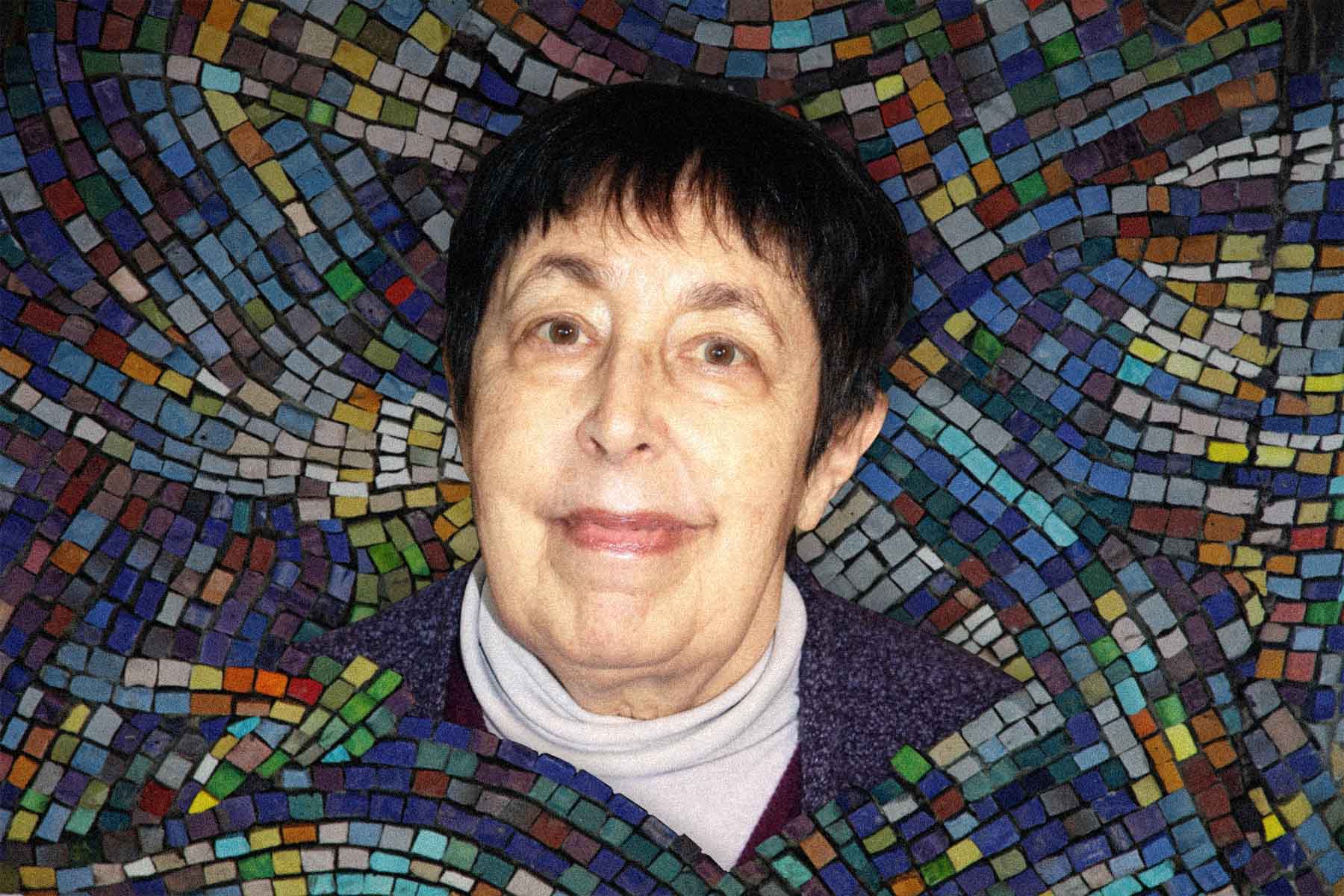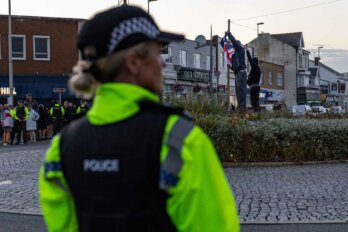Judith Herman spoke out about sexual trauma at a time when the dominant culture preferred to pretend it didn’t exist. In 1981, the Harvard professor, researcher, and psychiatrist published her first book, Father-Daughter Incest. She then wrote Trauma and Recovery: The Aftermath of Violence—From Domestic Abuse to Political Terror in 1992, arguing that trauma was not simply a rare affliction affecting war veterans but a condition too commonly experienced by people exposed to abuse and sexual violence in their everyday lives. Trauma and Recovery became the textbook for trauma, read by everyone working with survivors, including myself, a psychiatrist who works with survivors of gender-based violence. Herman remains the authority on the topic, with her three stages of trauma recovery widely adopted as our standard for trauma treatment.
Herman began writing her recently released follow-up, Truth and Repair: How Trauma Survivors Envision Justice, in 2001. After decades of treating and researching trauma, she realized she needed to add a fourth stage of recovery, one that involved the wider community around a survivor. “If trauma is truly a social problem, and indeed it is, then recovery cannot simply be a private, individual matter,” she writes in her new book. Healing requires social justice.
Over the twenty years since she started Truth and Repair, Herman lost her spouse, became a grandmother, and faced her own health problems, resulting in a move to assisted living. When the pandemic hit, the “solitary confinement” that she describes experiencing finally gave her the time to complete the book and share the lessons she’s learned from a lifetime of listening to what trauma survivors need to heal.
Herman spoke with The Walrus about her legacy and Truth and Repair, which was released in March.
This conversation has been edited and condensed for length and clarity.
What experiences contributed to your previous book, Trauma and Recovery?
A few months before I started my training in psychiatry in 1970, I joined a radical feminist organization. The first two patients I saw as a psychiatry resident were women who had made serious suicide attempts, and both of them revealed histories of incest. The consciousness I had gained from my feminist group helped me understand why their suicidality would be linked to childhood abuse. At the time, the comprehensive textbook of psychiatry estimated the prevalence of incest as one case per million. What were the odds that my first two patients would be incest survivors if that was true? Either the great authorities were completely wrong or we had to ignore what women were saying. I chose to listen to women.
You mention in Trauma and Recovery how hard you had to fight for people to even recognize that psychological trauma existed.
You have to remember that I wasn’t alone: I was part of a movement. We understood that it was going to be a long journey and we were in it for the long haul. A group of us had founded the Victim Surveillance Program as part of the psychiatry department at Cambridge Hospital (now known as Cambridge Health Alliance), which was a public sector teaching hospital for Harvard Medical School. We were out to change how people in the field thought.
Post-traumatic stress disorder was finally recognized as a real diagnosis in 1980, and that was tied to the social movement of Vietnam veterans against the war. It required a political movement to validate that the veterans weren’t cowards and they weren’t just failing to be real men.
I think it was much easier for people to recognize trauma in war veterans because you couldn’t deny they’d been to war. They weren’t making that up. Whereas in the so-called private sphere of the abuse of women and children, often there were no witnesses outside the family.
I argued in Trauma and Recovery that trauma is trauma: you see the same symptoms whether you’re talking about combat vets or rape survivors or whether you’re talking about political prisoners or survivors of intimate partner violence.
Many of the survivors of sexual trauma you interview are women. What role does gender play?
There are survivors of sexual trauma of any gender. But most of them are abused by men. The concepts I’m describing about trauma apply to the violence of dominance and insubordination, whether that’s based on gender, race, class, or religion. The traumas are the same.
You gave an entire generation of doctors and therapists permission to step away from the neutral stance we were trained to adopt and instead advocate for fixing the social systems that hurt our patients. What motivated you to take such a stance as a social activist?
Trauma is a social problem. It’s hard to talk about it if you don’t have a social movement that names the problem because the bystanders and the wider community would just as soon not think about it. It’s horrible! If you’re going to talk about the harms of war, you need an anti-war movement. And if you’re going to talk about the harms of patriarchy, you need a women’s movement. Now we have social movements like Black Lives Matter and #MeToo.
In your 1992 book, you outlined the three stages of recovery for trauma. What was your thinking behind these?
The three stages of recovery—and these are not rigid compartments—start with safety. It’s all about creating some sort of island of safety in the present that allows you to feel like whatever happened in the traumatic experience is in the past. You’re not living an endless traumatic past, because you have some protection now. And safety is not an individual matter. You can’t be safe alone. It has to do with some sort of supportive community.
Only then can you move to stage two and think about revisiting the past from a safe space. That’s when you do the trauma-processing work. It’s not a quick and dirty process. People have this fantasy that it’s like an exorcism and they’re going to vomit out the trauma and they’re going to be cleansed, but it’s not like that. It’s an integrative process, where you grieve and make meaning of what happened and transform your traumatic memory into a narrative memory that is part of your life story but not your whole life story. The third stage happens when you’re ready to come back and reconnect to the present and future, to imagine things you can do and be and become that you couldn’t imagine before.
In your new book, you’ve added a fourth stage of recovery: justice. How did you know you needed to write this book?
I was seeing what happened to patients if they tried to get justice in any kind of formal sense, and it wasn’t a pretty picture. The conviction rate in the US is less than 1 percent for sexual assault, and the reporting rate is only about 20 percent (surveys show a range from 9 to 32 percent) as most people know what they will be subjected to if they report.
Some of my informants went through the whole ordeal of an adversarial trial, where there were witnesses and they were subjected to hostile examination, which makes PTSD worse. Survivors are not seen as credible in court. Trauma affects memory. Trauma memories intrude when you don’t want them to. You can’t necessarily retrieve them when you do want them. They’re not narrative. They’re not very verbal. And they are often retrieved in a way that is either emotionless or extremely emotional; in the latter case, you feel all the terror and hurt and grief that you felt in the moment.
You write that survivors feel the betrayal of bystanders more deeply than even the direct harms inflicted by the perpetrator.
You see this a lot in the public and political domain as well. A lot of the Holocaust literature is asking, “Where were the bystanders?” And Jennifer Freyd, who is a psychology professor and also a survivor, talks about how institutional betrayal—for example, when colleges fail to believe and support victims of sexual assault on campus—in many ways, hurts as much or even more than the betrayal of the offender.
So what does justice really look like for trauma survivors?
When I asked survivors, “So what do you want?” I heard a lot of ambivalence about punishment and monetary damages. They also didn’t see what punishing the offender was going to do or how that was going to help the survivors themselves. A lot of people felt that even though they needed compensatory money, as they spent so much on medical care and mental health care and lost time at work, it would be dirty money. And they certainly didn’t want to sign non-disclosure agreements, like hush money.
When you’ve been attacked, you see up close the hatred and malice of another person who really wants to hurt you. It shakes your trust in people, especially if this is a family member who’s supposed to love you or a teacher, coach, priest, or someone who’s supposed to be an authority. It affects your sense of self, your sense of relationships, and your sense of safety in the world. Trauma is not just a disorder of fear, it’s a disorder of shame.
When survivors receive acknowledgement and apologies and amends from their communities, it restores the survivor’s faith in humanity. It restores a sense of belonging. We are social beings, and we want to be part of a community. It’s natural for us to crave liberty and equality. We want to belong to communities where we are not subordinates, where we’re not inferior. You can think of justice as being part of a community where everyone belongs, everyone is respected, and everyone has a voice.
What surprised you the most about what survivors say they need?
I was surprised by how unanimous they were that the number one requirement was public acknowledgement of the harm. They weren’t big on punishment. They also weren’t big on forgiveness. And they weren’t that focused on the offender. They wanted not just an acknowledgement of the facts but an acknowledgement that what the offender did was wrong and that he was the one who should be disgraced. They were much more interested in restitution and rehabilitation than they were in revenge or punishment. They wanted to regain the respect and validation of their communities or families and for the shame to be placed on the offender, where it belonged.





